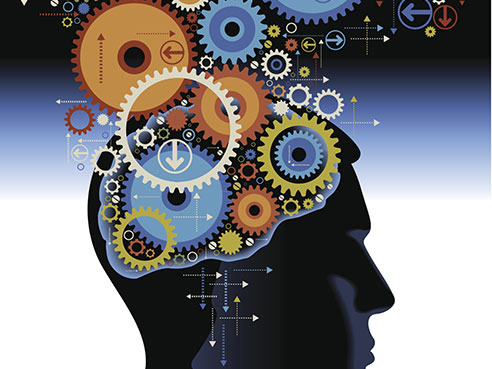 Among the sharpest of cutting edges in science is the interface between machines and the brain, especially in the field of overcoming loss of motor function due to injury or disease. Leading scientists and engineers from around the nation and from the University of Alabama at Birmingham will gather for a symposium on the brain-machine interface at the 2015 Bevill Neuroscience Symposium. Sponsored by the UAB Comprehensive Neuroscience Center, the symposium will highlight the collaboration between the fields of engineering and medicine.
Among the sharpest of cutting edges in science is the interface between machines and the brain, especially in the field of overcoming loss of motor function due to injury or disease. Leading scientists and engineers from around the nation and from the University of Alabama at Birmingham will gather for a symposium on the brain-machine interface at the 2015 Bevill Neuroscience Symposium. Sponsored by the UAB Comprehensive Neuroscience Center, the symposium will highlight the collaboration between the fields of engineering and medicine.The event is all day Friday, Feb. 27, in the UAB Alumni House, at the corner of 10th Avenue South and 13th Street. Opening remarks begin at 8:30 a.m.
“Some of the nation’s leading figures in biomedical engineering will be in attendance,” said Lori McMahon, Ph.D., director of the UAB Comprehensive Neuroscience Center. “UAB will be well represented by speakers in areas such as psychology, psychiatry, neurology, radiation neurobiology, engineering, and physical medicine and rehabilitation.”
Featured speakers include:
- Miguel Nicolelis, M.D., Ph.D., Duke University, who was the first to propose and demonstrate that animals and human subjects can use their electrical brain activity to directly control neuroprosthetic devices via brain-machine interfaces.
- Andrew Schwartz, Ph.D., University of Pittsburgh, has developed a paradigm to explore cortical signals generated during volitional arm movements. His team has developed an algorithm to capture arm-movement data and has shown that a paralyzed patient who cannot move any part of her body below her neck can move a high-performance modular prosthetic limb intuitively in coordinated, graceful movements closely resembling natural arm and hand movements.
- Leigh Hochberg, M.D., Ph.D., Brown University and Massachusetts General Hospital, whose research focuses on the development and testing of novel neurotechnologies to help people with paralysis and other neurologic disorders, and on understanding cortical neuronal ensemble activities in neurologic disease.
- P. Hunter Peckham, Ph.D., Case Western Reserve University, focuses on functional restoration of the paralyzed upper extremity in individuals with spinal cord injury. He and collaborators developed three generations of implantable neural prostheses which use electrical stimulation to control neuromuscular activation.
“Since Hans Berger’s discovery of the ability to detect electrical activity of the human brain, and the ability to monitor this activity by electroencephalography (EEG), scientists have pursued the extension of this insight to the area of neuroprosthetics. Early outcomes of this research include cochlear implants and others,” said Robert E. Palazzo, Ph.D., dean of the College of Arts and Sciences. “Recently, the extraordinary demonstration that implants in the brain’s motor cortex can transmit signals capable of directing the movement of robotic artificial limbs has ignited the promise of combining the science of the brain with the engineering of prosthetic devices. The promise for the development of integrated portable devices that overcome loss of hearing, loss of movement, and possibly even loss of sight is upon us.”
UAB speakers include Iwan Alexander, Ph.D., dean, School of Engineering; Robert Palazzo, Ph.D., dean, College of Arts and Sciences; Amie McLain, M.D., professor and chair, Department of Physical Medicine and Rehabilitation; David Standaert, M.D., Ph.D., professor and chair, Department of Neurology; Lori McMahon, Ph.D., director, Comprehensive Neuroscience Center; Adrienne Lahti, M.D., professor, Department of Psychiatry; Harrison Walker, M.D., associate professor, Department of Neurology; Rajesh Kana, Ph.D., associate professor, Department of Psychology; Mark Bolding, Ph.D., assistant professor, Department of Radiology; and Corey Shum, technical director, Enabling Technology Laboratory.